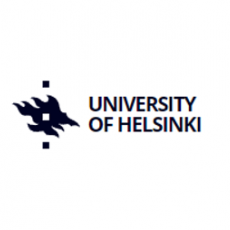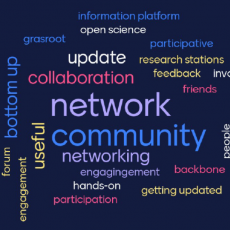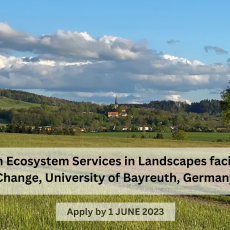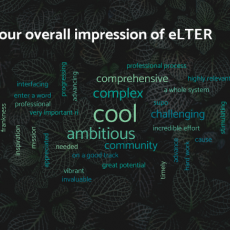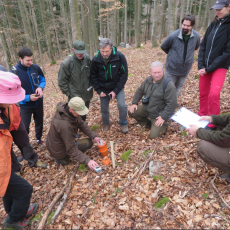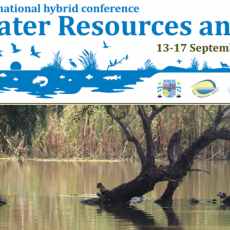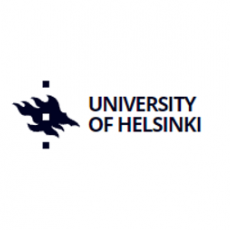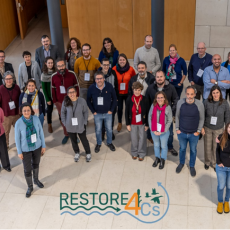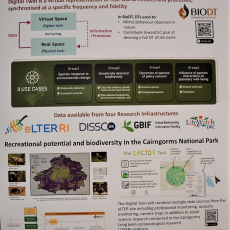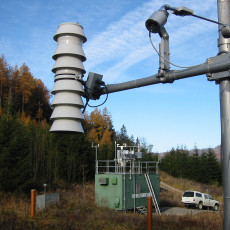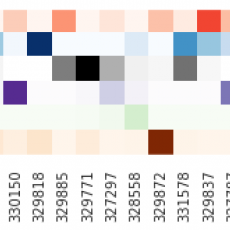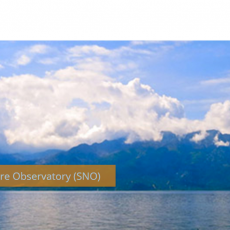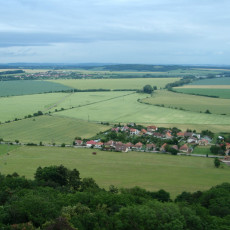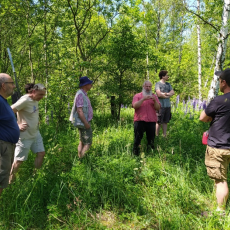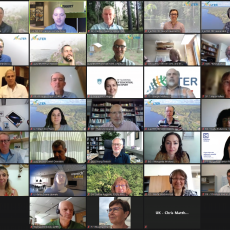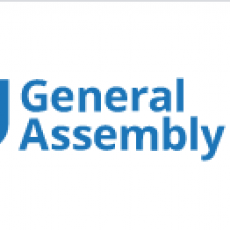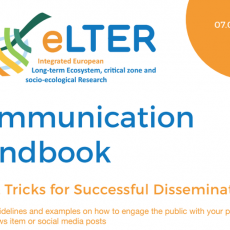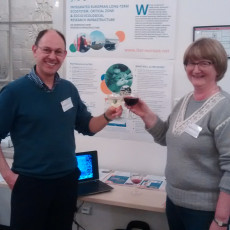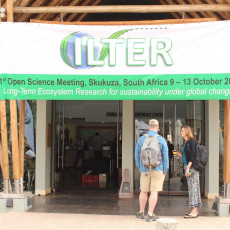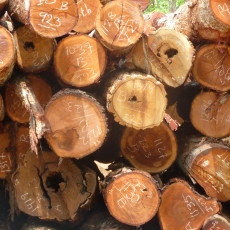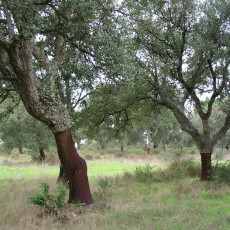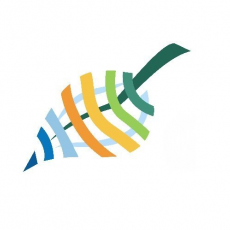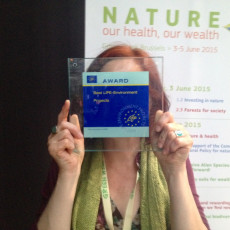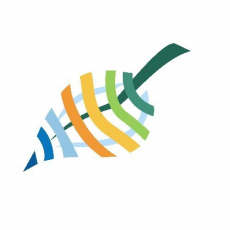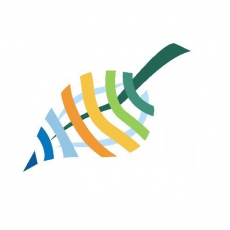News
2 June 2023
The Faculty of Science at the University of Helsinki is the largest science faculty in Finland. Currently, the faculty invites applications for TWO STAFF SCIENTISTS AND TWO DATA SCIENTISTS (UNIVERSITY RESEARCHERS): Staff scientist 1 will work in atmospheric greenhouse gas measurements. The core activity of the staff scientist is to ensure production of sustainable and traceable high-quality data and data products of greenhouse gas concentrations and ecosystem-atmosphere exchange fluxes...
30 May 2023
eLTER Sites and Platform Forum (SPF) is a precedent of a formal body in eLTER RI. It aims to bring together eLTER Sites and Platform coordinators (SPCs) and to make it easier for SPCs to develop and communicate joint activities and to contribute to the development of eLTER RI.The SPF04 meeting took place online on 9 - 10 May 2023. About 75 representatives for eLTER Sites and Platforms gathered to hear about updates regarding Standard Observations, Site Labelling and Service Portfolio. Data and t...
23 May 2023
The interdisciplinary research of the Professorship of Ecological Services (PES), University of Bayreuth aims at better ecological management of agriculturally dominated landscapes facing climate change. Towards this goal, a Postdoc position (6 years, 100%, A13Z Akademische Ratsstelle auf Zeit) is currently available. Candidates will develop spatial models of land use and ecosystem services in regional human-environment systems to explore historical developments, optimise current syste...
22 May 2023
On 2 May 2023, the fifth meeting of the eLTER Interim Council took place with 50 participants via Zoom. 16 countries that are members of the IC were represented by national delegates. Norway and the Netherlands attended as observers for the first time and gained an insight into the main developments of the eLTER RI. As one of the first items on the agenda, IC delegates approved the eLTER RI Human Resources Strategy. This document describes the type of staff needed in the Research Infrastru...
19 May 2023
In Fall of 2022, LTER Slovakia started the project “Soil carbon fluxes in dominant forest ecosystems along an elevation gradient in the Western Carpathians” (CALTER). The project is funded by the national grant agency APVV and led by dr. Peter Fleischer from the Technical University in Zvolen (Slovakia). This is the first project that involves all institutions coordinating research in LTER Slovakia sites.The project’s main aim is to identify carbon loss by respiration and leaching and to id...
18 May 2023
The Dao Hyperspectral Remote Sensing & Agricultural Intelligence Lab at Colorado State University is looking for a Postdoc to start in September 2023 or shortly after. This position focuses on understanding the interactions between plants and crops and biotic and abiotic stresses using drone hyperspectral remote sensing. We are broadly interested in addressing questions related to the detection of physiological and biochemical responses of plants to the impacts of droughts, pests and pa...
17 May 2023
Submit your abstract for the 6th International Hybrid Conference “Water resources and wetlands” that will take place between 13-17 September 2023 in the “Delta” Hotel in Tulcea, Romania and online.Authors are invited to submit abstracts (400 words) in electronic form until May 26 2023.Abstracts should be sent as а part of the registration form or to e-mail: wrw_conference@limnology.ro.Learn more here.
16 May 2023
Two research positions are now open at the University of Helsinki.(1) Lammi Biological Station is looking for a University Researcher in aquatic sciences with expertise in plankton ecology. They are particularly interested in candidates aiming to use the extensive background data on the nearby lakes.The position is for a fixed five-year contract starting 1st July 2023 or by a separate agreement. A trial period of 6 months will be applied. The deadline for applications is...
15 May 2023
The research group of LTsER Ria de Aveiro from the University of Aveiro is involved in two H2020 projects that will consolidate basic knowledge on biodiversity, ecosystem services, restoration ecology, ecosystem management and environmental economics. Through these projects, the group will be able to address climate change, biodiversity loss and habitat degradation, aiming towards sustainable management of European wetlands.The two projects are:1. RESTORE4Cs - "Modelling Restoration of...
12 May 2023
A poster presented during a dedicated session at the eLTER consortium meeting in Frankfurt, Germany (17 to 21 April) highlighted the collaboration between researchers contributing from biodiversity and socio-ecological data provided by eLTER RI sites and long-term socio-ecological research platforms.It presented the BioDT project which has eight use cases, one of which concerns creating a digital twin* linking cultural ecosystem services of recreational potential and biodiversity and is ini...
31 October 2021
This year, the Austrian Federal Ministry of Education, Science and Research (BMBWF) adopted eLTER in its operational plan for Research, Technology and Innovation (RTI) for the years 2021-2023.The operational plan sets concrete targets for implementation within the framework of the RTI strategy towards the year 2030. Research Infrastructures are one pillar of the strategy.With the adoption, eLTER is now ready for implementation towards an Austrian National Research Infrastructure compiling sites...
29 October 2021
Scientific research on SocioEcoSystem (SESs) has grown exponentially since the seventies, but because of the heterogeneity in the actors, the disciplines and the collected data, some efforts are still necessary to build a common language anda thesaurus for indexing data.
Natural Language Processing (NLP) methods were used to analyse a French corpus derived from the 5th colloquium of the French long term socio-ecological research network RZA (Réseau des Zones Atelier) which marked the network'...
29 October 2021
LTER-Greece has finished updating its website and is happy to present its brand new look to the public. The online address remains the same: https://www.lter-greece.gr/.Apart from a fresh new visual identity, the website also delivers updated fact sheets about all Greek LTER sites like: Koiliaris Critical Zone Observatory (established in 2004); Hydrological Observatory of Athens (established 2005); Pinios Hydrologic Observatory (established 2015); Samothraki Nature Observatory (established 2014)...
27 October 2021
The international team of researchers working to advance the eLTER data service portal concept and pilot socio-economic and environmental data welcomed a sixth LTSER platform to the fold.
The eLTER Slovakian partners, ILE SAS, responsible for the task in eLTER PLUS focused on "Harvesting of official statistics", decided to join the five funded pilot LTSER platforms as they were effectively half-way there when completing their task.
The six platforms are tasked with determining stakehold...
26 October 2021
In June 2021, the Czech LTER network successfully held their annual meeting near Sokolov (CZ). The decision was made to meet in person because of significant recent progress in Czechia's involvement in the building of eLTER RI after the government expressed conditional political support for eLTER last autumn.
Following tradition, the second day of the annual meeting was dedicated to a field trip to one of the Czech LTER sites, this year to LTER Sokolov post-mining ecosystems, led by its sit...
28 September 2021
It will be an exaggeration to say that most people barely remember what working on international projects was like before the COVID-19 pandemic. But it is true that we got used to “the new normal” – seemingly endless virtual meetings, repurposing our homes into offices, all our colleagues suddenly turning into “floating heads” in hazy backgrounds. To some this almost sounds like a dystopian, futuristic novel.However, the hope is that with the vaccination process going strong the situation is slo...
27 September 2021
The second eLTER Interim Council took place from 29-30 June 2021 with 50 representatives of 19 countries and the project’s Steering committee.
Among the important decisions taken during the meeting were the election of Kevin Bishop (Sweden) as the Chair, and Daniel Weselka (Austria) as the Vice-Chair, and the approval of the eLTER RI Strategic Plan and the eLTER Central Services host selection process.
Members decided to direct the Strategic Plan towards both European and global audiences....
31 July 2021
The Global Ecosystem Research Infrastructure (GERI) arranged a session in the vEGU2021. The session consisted of 10 presentations covering topics like water resources and oceans, SDG’s addressed by RIs, climate models informing policy decisions and the fundamental concept of the emerging GERI, which was presented by the eLTER PLUS coordinator, Professor Jaana Bäck.
GERI is a consortium of six distributed RIs (eLTER and ICOS in Europe, TERN in Australia, NEON in US,&nbs...
28 July 2021
Country: PortugaleLTER site: Baixo Sabor LTERThe Baixo Sabor LTsER is located in Portugal, in the region of Trás-os-Montes, within the watershed of the Sabor river (3868 km2), which drains into the Douro river. It encompasses the lower reaches of the Sabor River and the catchment of its tributaries (1590 km2).The research on site aims to understand the long-term consequences of river damming on freshwater and adjacent terrestrial ecosystems. As such, a thorough fish monitoring program has been e...
25 July 2021
The purpose of the document is to provide the various eLTER teams, National Coordinators and the Site and Platform Coordinators with up-to-date information on how to handle their communication on local, national and international level in the best possible way.
Furthermore, the included information could be of general usefulness for the eLTER community even outside of the project. Among the contents of the Handbook are:
- How to write for social media: Twitter / Facebook...
21 September 2021
Insects have an important function for both ecosystems and the economy. Almost 90% of flowering wild plants worldwide depend at least partially on pollination by animals. And more than 75% of all crops also need pollinators if they are to produce a high yield and good quality. But what about these important helpers? Where are their populations threatened? And what can be done about it? So far, there has been a lack of systematic inventories in Europe that can provide answers to these questions....
14 November 2016
Several representatives of the eLTER Research Infrastructure that is being developed via the eLTER ESFRI initiative, attended the 3rd ENVRI week in Prague. ENVRI week, which takes place twice a year in November and May, is dedicated to Environmental Research Infrastructures, and is organised by the ENVRIplus project.As well as sessions relating to ENVRIPlus work themes, there were additional sessions such as a joint session between environmental RIs and the Copernicus programme that is...
14 October 2016
From 10-13 October 2016, three hundred delegates from around the globe gathered in Skukuza in South Africa's Kruger National Park for the first ILTER Open Science Meeting.
This landmark event, the first of its kind organised by ILTER (the International Long-Term Ecological Research network), provided an opportunity for scientists to share the research carried out at long-term research sites around the world. In all, some 160 presentation...
14 September 2016
A new paper sets out how the international LTER community could collaborate effectively with the global ICSU Programme on Ecosystem Change and Society (PECS)
Members of the International Long-Term Ecological Research (ILTER) community have published a paper exploring the contribution that their research can make to understanding changes in biodiversity and trade-offs among ecosystem services, stakeholders and components of well-being....
9 March 2016
A video featuring the Montado long-term research site, one of the eLTER project's Transnational Access sites, has been produced by the OPERAs project.
The video explains how the cork plantations of Portugal are some of the most biologically diverse agricultural systems on the planet. Despite this, the unique Montado area is under threat from over exploitation, climate change and disease. The EU-funded OPERAs project has teamed up with Po...
1 February 2016
Dr Mark Frenzel (UFZ, Germany), who is closely involved in developing LTER-Europe, was interviewed recently about how LTER-Europe & EU BON can work together
The European Biodiversity Observation Network, EU BON, has signed memoranda of understanding with almost thirty institutions and projects, aiming at greater collaboration and exchange of expertise. Among the early partners is LTER-Europe. Dr Mark Frenzel, who has had a leading ro...
2 March 2015
LTER-Europe's EnvEurope project picks up an award at Green Week, Brussels
The EnvEurope project, which was started by and developed within LTER-Europe, has recently won an award for Best LIFE Environment Project, 2014. EnvEurope, which was completely dedicated to the LTER-Europe network, was funded by the European Union's LIFE+ programme.
The project contributed to the integration and coordination of long-term ecological research...
1 July 2013
News of a magazine article on long-term research
"In the era of Big Data, research projects that focus on phenomena that unfold across decades have distinct benefits—and some drawbacks". This article in 'The Scientist' discusses long-term research, it's merits and the associated challenges: http://www.the-scientist.com/?articles.view/articleNo/36091/title/The-Long-View/
2 February 2013
Several members of ILTER - including Martin Forsius of Finnish LTER - have edited a special issue on ecosystem services.
Ecosystem services: climate change and policy impacts is a special issue of the journal Current Opinion in Environmental Sustainability, and is edited by Bojie Fu, Martin Forsius and Jian Liu. The issue includes papers by the editors, including one by Forsius et al., which is directly based on Finnish LTER data. Also included is a paper by Vihervaara, et al.,...
